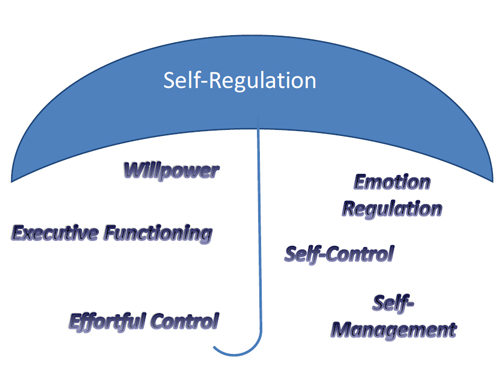Mental health providers and other professionals often talk about a child or adult's "dysregulation" and "self-regulation," but these terms are often left undefined. A 2017 summary and the 2015 report from the U.S. Department of Health and Human Services help define self-regulation and show the complex social, biological, and environmental factors involved in development of self-regulation.
The summary defines self-regulation as "the act of managing one’s thoughts and feelings to engage in goal-directed actions such as organizing behavior, controlling impulses, and solving problems constructively."

Being able to self-regulate helps us succeed in many aspects of life, including creating satisfying relationships, tolerating difficulty, prospering in school and work, managing finances, and maintaining physical and mental health. Self-regulation is a critical life skill.
Self-regulation depends not only on the individual child or adult's biology and actions, but also on the contributions of parents, teachers, other mentors, as well as conditions in the neighborhood to global environments. As a community, we all play a role in each child's development of self-regulation. Likewise, we all can play a role in helping each other repair missed developmental steps.
When we see poor self-regulation in ourselves or another individual, it helps to remember that as children we do not have much control over whether we learn self-regulation.
Although learning self-regulation is probably easier as a child, humans have the ability to achieve self-regulation at any age, whether through healthy relationships, psychotherapy, or neurofeedback. A large part of my therapeutic work is helping individuals of all ages learn how to self-regulate.
The 2017 summary, Seven Key Principles of Self-Regulation and Self Regulation in Context, is a clear explanation of the development of self-regulation.
The full 2015 report, Self-Regulation and Toxic Stress: Foundations for Understanding Self-Regulation from an Applied Developmental Perspective, is also available.

